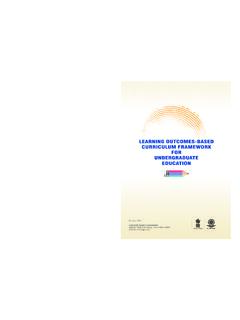Transcription of Cold, flu and sinusitis: Managing symptoms
1 Cold, flu and sinusitis: Managing symptoms and supporting self-care A handbook for pharmacists 2021 Cold, Flu and Sinusitis: A handbook for pharmacists | pi Colophon Copyright 2021 International Pharmaceutical Federation (FIP) International Pharmaceutical Federation (FIP) Andries Bickerweg 5 2517 JP The Hague The Netherlands All rights reserved. No part of this publication may be stored in any retrieval system or transcribed by any form or means electronic, mechanical, recording, or otherwise without citation of the source. FIP shall not be held liable for any damages incurred resulting from the use of any data and information from this report. All measures have been taken to ensure accuracy of the data and information presented in this report. Author: Jun Ni Ho, University of South Australia Editors: Matthew Hung, FIP Practice Development Projects Assistant Gon alo Sousa Pinto, FIP Lead for Practice Development and Transformation R ben Viegas, FIP Practice Development Projects Coordinator Reviewers: Jaime Acosta-G mez, FIP Community Pharmacy Section Secretary Daragh Connolly, FIP Community Pharmacy Section President Sarah Dineen-Griffin, FIP Community Pharmacy Section Executive Committee member Paul Sinclair, Chair of the FIP Board of Pharmaceutical Practice Lars- ke S derlund, FIP Vice President Recommended citation: International Pharmaceutical Federation (FIP).
2 Cold, flu and sinusitis: Managing symptoms and supporting self-care. A handbook for pharmacists. The Hague: International Pharmaceutical Federation; 2021 Cover image: Gorynvd | pii | Cold, flu and sinusitis: Managing symptoms and supporting self-care. A handbook for pharmacists Contents Executive summary .. 1 Acknowledgements .. 2 Foreword .. 3 1 Introduction .. 4 2 The role of community pharmacists in common URTIs .. 6 Supporting self-care ..6 Disease prevention and respiratory well-being ..6 Use of masks ..7 Promoting and supporting nasal hygiene ..7 Other preventive Symptom assessment, patient triage and referral ..8 Patient history-taking process ..9 Identifying referral conditions .. 13 Patient education and counselling .. 13 Promoting awareness of antimicrobial resistance and the responsible use of antibiotics .. 13 Using neti pots or nasal cups .. 14 Administering nasal sprays (including with nozzle).
3 14 Administering nasal drops .. 15 Educating on and encouraging the use of masks .. 15 Minor ailment schemes .. 16 Evidence-based advice on complementary medicines .. 16 3 Common 17 Background .. 17 Risk factors .. 17 Signs and 17 Red-flag symptoms .. 18 Pharmacological 18 Non-pharmacological treatment .. 20 4 Influenza .. 21 Background .. 21 Risk factors .. 21 Signs and 21 Red-flag symptoms .. 22 Pharmacological 22 Non-pharmacological treatment .. 23 Flu vaccination .. 23 5 Sinusitis .. 25 Background .. 25 Risk factors .. 25 Signs and 25 Red-flag symptoms .. 25 Pharmacological 26 Non-pharmacological treatment .. 26 6 Conclusion .. 31 7 32 Cold, flu and sinusitis: Managing symptoms and supporting self-care. A handbook for pharmacists | p1 Executive summary Upper respiratory tract infections (URTIs) are contagious conditions, usually viral, affecting the nasal cavity, pharynx and They may include ailments such as the common cold, influenza and While, in most cases, these respiratory conditions are minor and self-limiting, they can have significant repercussions on patients quality of life and productivity, even affecting children and caregivers of those Cough, sore throat, rhinitis, rhinorrhoea and headache are among some of the signs and symptoms of URTIs and they often simultaneously , 2 As such, it is paramount for healthcare professionals, including pharmacists, to be able to discern possible causes of respiratory signs and symptoms and, most importantly, to recognise red-flag symptoms requiring prompt evaluation by a medical practitioner.
4 URTIs are ailments frequently encountered in outpatient settings, including outpatient and general practitioner clinics as well as community pharmacies. It is estimated that respiratory illnesses account for over 20 million visits to community pharmacists each year in the USA, and represent one of the most prevalent reasons, if not the most prevalent reason, for which patients seek advice from a healthcare Many treatment options are thus readily available over-the-counter for patients to manage their respiratory symptoms . As our health systems are evolving, we need a new approach to healthcare that empowers people to look after their own health. Improving health literacy and education can have such an empowering effect on people s lives. Yet its importance is underplayed in healthcare policymaking today. Enabling people to manage their health and well-being is a key part of overcoming the multiple healthcare crises across all countries and territories, and to relieving pressure on overburdened healthcare systems.
5 To achieve this, all stakeholders need to commit to initiatives that put the patient at the centre of treatment, an equal commitment to better education and a greater emphasis on self-care. The FIP statement of policy Pharmacy: Gateway to care emphasises the importance and benefits of self-care and recognises both the personal responsibility of patients to enhance and maintain their own health and well-being, and the responsibility of pharmacists to support patients in self-care activities. This is further detailed in the publication Pharmacy as a gateway to care: Helping people towards better health . In light of the prevalence, clinical features and opportunities for education and counselling regarding URTIs, pharmacists are ideally placed to support patients in the management of such infections. As accessible, front-line healthcare professionals, pharmacists, especially in community settings, play an important role in assessing the presenting signs and symptoms through screening, triage and referral if deemed necessary.
6 Moreover, pharmacists are well equipped with the necessary clinical and pharmacological knowledge to recommend appropriate supportive care and non-pharmacological treatment options in addition to guiding patients through the variety of non-prescription products and medicines available for these indications. Pharmacists are also available to educate patients on the use of complementary medicines, which may present both risks and benefits, when treating symptoms of URTIs. This handbook serves as a ready-to-use reference document covering different aspects of the management of common URTIs in the community setting. Throughout the various sections, guidelines, algorithms and summary tables, this handbook is meant to support pharmacists in promoting respiratory well-being, developing a thorough understanding of commonly encountered URTIs, and navigating through both non-pharmacological and pharmacological management options.
7 Pharmacists are embedded key players in the health landscape of their communities and are trusted for patient-centred, comprehensive, timely advice. The accessibility of pharmacy means that the knowledge and skills of community pharmacists are extensively sought by everyone from teenagers to new parents, to older adults and everyone in between. This handbook will further strengthen their essential role within the community to provide optimal patient care and support informed self-care. p2 | Cold, flu and sinusitis: Managing symptoms and supporting self-care. A handbook for pharmacists Acknowledgements The content of this handbook has been produced independently by the FIP authors and editors. This study was supported by unrestricted funds by The Clean Breathing Institute, a scientific initiative funded by GSK Consumer Healthcare. Cold, flu and sinusitis: Managing symptoms and supporting self-care. A handbook for pharmacists | p3 Foreword By the chair of the FIP Board of Pharmaceutical Practice As we celebrate the third anniversary of the World Health Organization s Declaration of Astana on Primary Healthcare, in October 2021, FIP has reiterated once again the global commitment of pharmacy to the principles of this important document.
8 It is imperative to prioritise primary healthcare, including health education , disease prevention, disease screening and patient triage to make health systems more efficient, more resilient and more sustainable. Primary healthcare is a critical factor towards universal health coverage and to leaving no one behind with the healthcare they need. Also, it is paramount to empower individuals to lead healthy lives through responsible and informed self-care. Healthcare professionals and pharmacists in particular especially in the community setting can play a key role in improving health literacy and supporting self-care, including appropriate choices in terms of diet and lifestyle, use of non-prescription medicines and medical devices, use of alternative and complementary medicine products and the adoption of other non-pharmacological measures. The role of pharmacists in supporting self-care and improving patient well-being lies at the intersection of FIP Development Goals 14 (Medicines expertise), 15 (People-centred care) and 18 (Access to medicines and services).
9 Furthermore, self-care in the area of upper respiratory tract infections is additionally linked to FIP DGs 16 (Communicable diseases) and 17 (Antimicrobial stewardship). Over the past couple of years, the COVID-19 pandemic caused by a novel respiratory virus has led to the promotion and adoption of preventive measures by populations all around the world, which clearly had an impact on the transmission rates not only of COVID-19, but of infectious respiratory diseases in general, including common colds and influenza. However, upper respiratory tract infections and inflammation are and will probably remain among the most common reasons for consultations with community pharmacists and for the use of self-care approaches to symptom management. In addition to the menace of future epidemics or pandemics, respiratory health and well-being are increasingly compromised by the global threat of air pollution a problem that the World Health Organization listed as one of the top ten threats to global health in 2019, with 99% of the world currently breathing air that exceeds the WHO guideline limits containing high levels of pollutants.
10 Air pollution makes people more vulnerable to respiratory infections and inflammation and can have other devastating effects on health. Common upper respiratory tract conditions and the impact of air pollution on health represent important challenges for primary healthcare, and pharmacists can certainly play an important role in promoting awareness and health literacy in this area, supporting self-care, assessing patients signs and symptoms through screening, triage and referral, and in mitigating the impact of air pollution on respiratory well-being. In recent times, FIP has produced various resources in the area of respiratory health, such as the recent report The global threat of air pollution and its impact on patient care: Supporting pharmacy practice and workforce development , the global survey report Mitigating the impact of air pollution on health: The role of community pharmacists , the call to action Mobilising pharmacists across our communities to mitigate the impact of air pollution on health and different resources to support pharmacists throughout the COVID-19 pandemic.




